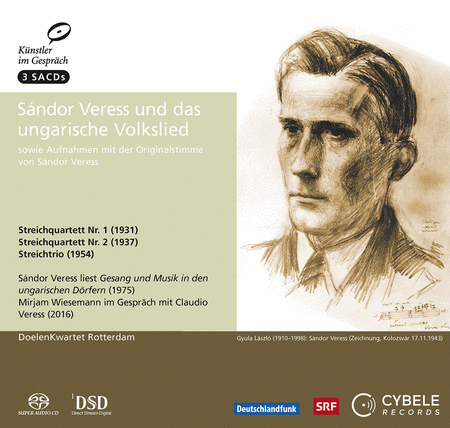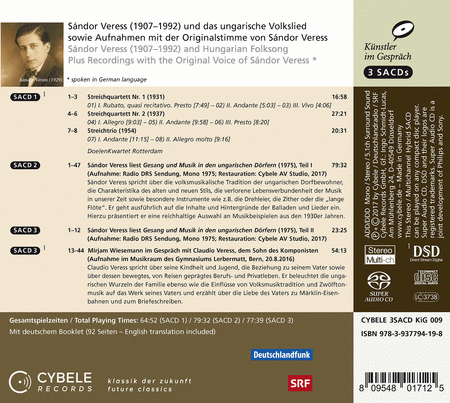Sandor Veress and Hungarian Folksong
Description
SKU: NX.CYBELE-3SACD-KIG-009
By Claudio Veress, DoelenKwartet Rotterdam, Mirjam Wiesemann, and Sandor Veress. By Sandor Veress. Classical. Hybrid SACD. Naxos #Cybele 3SACD KiG 009. Published by Naxos (NX.CYBELE-3SACD-KIG-009).UPC: 809548017125.
Edition Artists in Conversation Vol. 9 - Art Is Not a Police State (Sandor Veress). This comment by the Hungarian composer Sandor Veress, referring to his very free approach to twelve-tone techniques in his music, is cited by his son Claudio of the present edition. However, one could just as easily ascribe it to the political and personal circumstances with which Sandor Veress was confronted along his life's adventurous path, which compelled him to a life in exile in the end: He grew up and was educated in Budapest; as a young man, he went to Berlin, London and Rome before becoming a political emigre at the end of the 1940s and finding, through several strokes of luck, a new home in Bern. The theme of being rooted, of origins and originality, also musically, preoccupied him throughout his life, as was particularly evident in his field research in Moldavian villages, on which he worked intensively even as a 23-year-old. With meticulousness and passion he documented the wealth of Hungarian song, both on paper and with the Edison phonograph, and this research infused his compositions, unmistakably perched on the threshold between folksong, the contrapuntal tradition up to the point of modernism and, from 1950, the twelve-tone method. This approach is also reflected in his two string quartets and his string trio (SACD 1).


 Share
Share